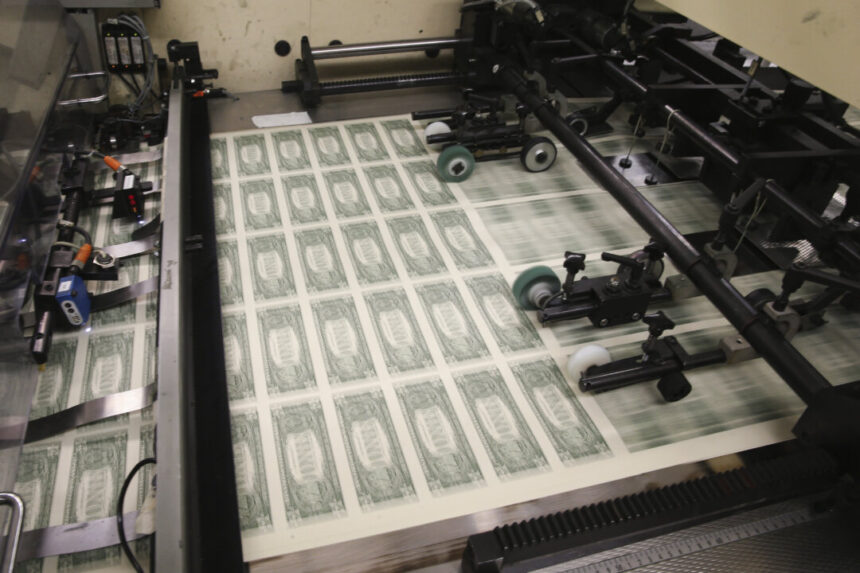Commentary
Many economic commentators believe that increasing the quantity of money can stimulate an economy. This belief stems from the idea that with more money in circulation, people will spend more, leading to a chain reaction of increased economic activity. However, it is important to note that money is not a means of payment, but rather a medium of exchange. It allows producers to exchange their goods and services with one another.
People do not demand money itself, but rather the purchasing power that money provides. As Ludwig von Mises explains, individuals seek to maintain a certain level of purchasing power in their cash holdings. Therefore, an increase in the money supply generally leads to a decrease in the purchasing power of money, while a decrease in the money supply strengthens its purchasing power.
Ultimately, the goal of production is consumption, and individuals engage in economic activities to improve their well-being. Consumption and production are closely linked in a free-market economy, with consumption being supported by production. Any attempt to increase consumption without a corresponding increase in production leads to unsustainable economic practices.
Monetary pumping, which artificially stimulates demand without a corresponding increase in production, can destabilize the economy by undermining real savings and capital formation. It is real savings, not money, that fuels the production of better tools and machinery, which in turn enhances the production of consumer goods and services.
Contrary to popular belief, consumption unbacked by production through monetary pumping hinders economic growth rather than spurring it. This unbacked consumption depletes real savings and weakens the foundation of economic prosperity. In times of economic downturn, further monetary pumping exacerbates the situation by increasing unbacked consumption and depleting real savings even further.
Overall, it is essential to maintain a balance between consumption and production in order to sustain long-term economic growth and stability. Artificially stimulating demand through monetary measures can have detrimental effects on the economy and should be approached with caution.
On the other hand, excessive pumping of money destroys real savings and weakens businesses, causing banks to be more hesitant to lend.
In such circumstances, banks are more likely to only lend to creditworthy businesses. However, as the economic downturn worsens, it becomes increasingly difficult to find creditworthy businesses. As a result, the central bank may find that despite its efforts to stimulate the economy, the money supply begins to decrease. In order to counteract this decline, the central bank may resort to aggressive monetary pumping.
The central bank has the option to monetize the government budget deficit (as seen during the COVID restrictions when it issued billions of dollars in checks to individuals). However, this approach further erodes real savings and ultimately harms the economy.
Does an Increase in Demand Lead to Economic Growth?
Mainstream economists typically believe that an increase in the money supply will boost demand for consumer goods and services, leading to increased production and economic expansion.
However, in order to support increased production of consumer goods and services, appropriate infrastructure is required. If the necessary infrastructure was not developed due to a lack of real savings, economic growth will not be sustainable.
No amount of money supply increase can facilitate economic growth. In fact, an increase in the money supply hinders the formation of real savings and hinders rather than promotes economic recovery.
Conclusion
Contrary to common belief, money is not just a means of payment but also a medium of exchange. Therefore, expanding the money supply does not enhance economic growth; rather, it weakens real savings and undermines the potential for lasting economic growth.
Opinions expressed in this article are those of the author and do not necessarily reflect the views of The Epoch Times.





